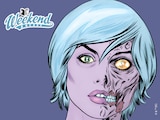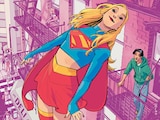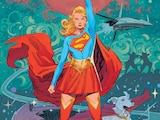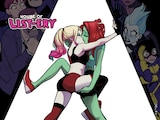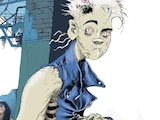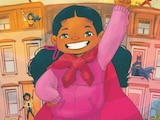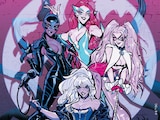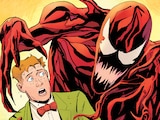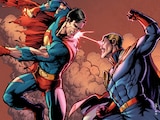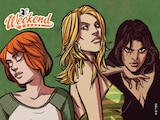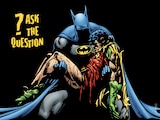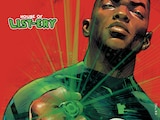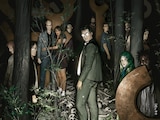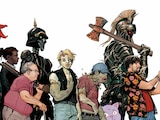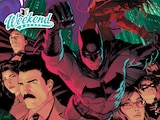At the start of The Oracle Code, the new DC Young Adult graphic novel written by Marieke Nijkamp with art by Manuel Preitano, young Barbara "Babs" Gordon finds her life drastically altered after getting shot by a burglar. Pre-shooting, Babs had a best friend—a fellow hacker named Benjamin—but post-incident, Babs finds herself all alone. And she tells herself that it's better that way. (You can read more about the book in our Book Breakdown.)
When Babs checks in to the Arkham Center for Independence, a rehabilitation center for Gotham's teens, the idea is for her to learn how to navigate her "new normal." She wants nothing to do with any of the other kids at the Center, and I can't blame her. She's mad at her father, who put her in the Center "for her own good." She's mad at the criminal who put her in the wheelchair. She's mad at her best friend Ben for totally ghosting her when she needs him the most. She's mad at pretty much everything, but she's been dealt a bum hand. I can only imagine how frustrating it would be to have to learn how to navigate the world in—quite literally—a completely different way.

On the first morning at the Center, two fellow rehab patients introduce themselves to Babs: Yeong, who's recovering from meningitis, and Issy, who injured her spinal cord. The two are welcoming, and try to give Babs a crash course in Center life. However, because she's Mad At The World, Babs isn't entirely kind to either of them.
Day five of her time at the Center sees Babs shutting herself off from a conversation with Yeong out of fear. "I don't want to make friends, because they all inevitably leave…I don't want to get hurt again," she thinks to herself. Ben's absence in her life has left a gaping hole that all the therapy in the world won't be able to fix. (Until Babs learns the lesson of The Oracle Code, that is, but we're getting there.)

Day 11 sees her actively trying to push Yeong and Issy away. "So much about this center doesn't make sense, and I can't stop being curious… But I can stop them from trying to make friends with me," she narrates. She doesn't want to let herself get close to the girls because she believes that not having friends is better than having friends who will leave you when times get tough (*cough*Ben*cough). It's more than a little heartbreaking to see someone who was so full of color at the beginning of her story prefer to live a life in black and white.
But on day 22, Yeong and Issy give Babs some tough love—which the best kind of friends will do when they know you need it. They confront her with the truth of the situation: They know what she's doing (shutting herself off to avoid more pain) but they think she'll be better off when she faces the fact that making friends and relying on others might be scary and might be hard, but it's worth it. And that the three of them together could do great things. (Like solve the mystery of the Center...but that's another story.) It takes three bags of marshmallows and nine games of Switch (most of which Babs wins), but Babs finds herself opening up to the girls and feeling more like herself than she has in weeks.

Thanks to Yeong and Issy's pushing, Babs comes to realize that their friendship—her new girl squad—is vitally important. Not only for mystery-solving purposes, but also for actual rehabilitation. Having people around who will push you both mentally and physically helps you heal, and asking for help is a lesson a lot of us need to learn, even if most of us never find ourselves unexpectedly in a wheelchair. Yeong and Issy stand up for Babs when she feels weak, and in turn, Babs gains strength from their belief in her. And although she eventually reconnects with Ben, it's Yeong and Issy's friendship that truly has Babs feeling like herself again.
"It's less scary to try to solve this puzzle when I'm with friends," Babs thinks. And although she's referring to a specific instance in The Oracle Code, by the end of the book, "solve this puzzle" is just another way to say "live life."
The Oracle Code by Marieke Nijkamp and Manuel Preitano is now available in bookstores, comic shops, libraries and as a digital graphic novel.
When Mandy Curtis isn’t reading books by Leigh Bardugo or Sarah J. Maas, she’s dreaming of busting bad guys with Wonder Woman—if Steve Trevor’s there, too, she won’t complain—and writing about YA fiction and pop culture at Forever Young Adult. Follow her on Twitter at @mandyannecurtis.

